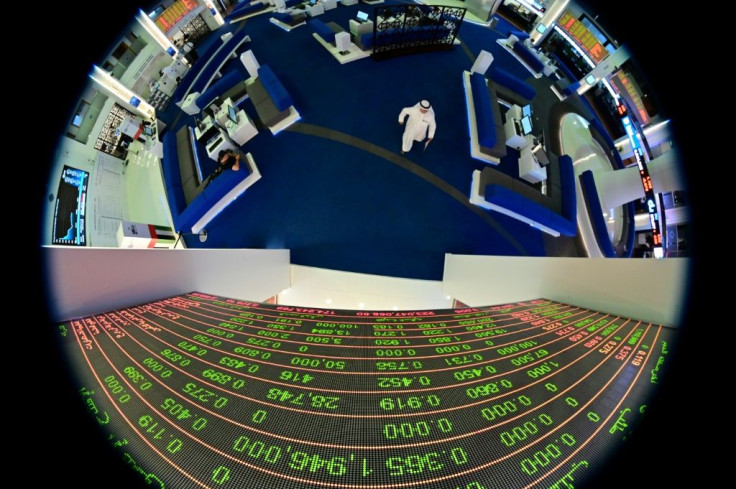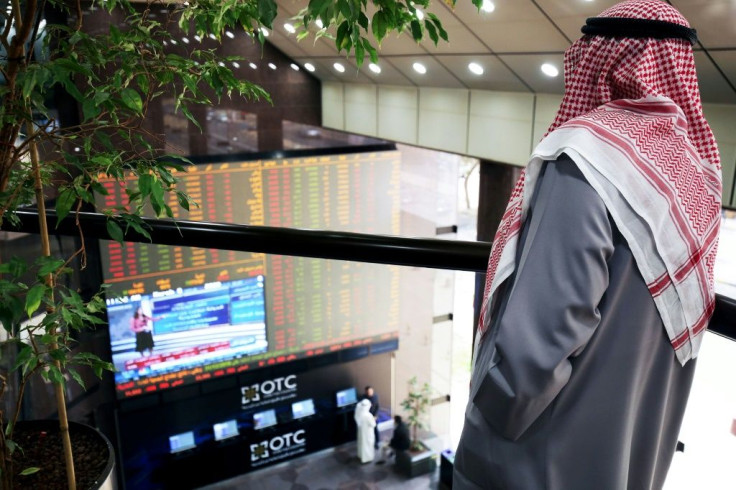Gulf Stocks Nosedive After Oil Prices Crash

Stock markets in the energy-rich Gulf states were battered on Monday as a price war sent oil prices tumbling after crude producers failed to agree on output cuts.
All seven Gulf Arab bourses were in the red for the second day running, shedding hundreds of billions of dollars of market value.
The Saudi market, the largest in the region, dived 7.8 percent over the day, with energy giant Saudi Aramco plunging by 10 percent before recovering around half of that by close.
The biggest listed firm in the world has lost some $250 billion of its value over the past two days.
Its capitalisation stands at $1.51 trillion, way below the $2 trillion sought by the kingdom in last year's IPO.
Dubai Financial Market dropped 8.3 percent at close, its worst level in seven years, but authorities suspended trading in most leading stocks after they slumped the maximum daily limit of 10 percent.
The Abu Dhabi Securities Exchange shed 8.1 percent to a four-year low, while the Qatar Stock Exchange was down 9.7 percent.
Kuwait's Premier index tumbled 10.3 percent, forcing a suspension of trading for the second day in a row. The country's All-Shares Index lost 8.6 percent.
The tiny bourses of Oman and Bahrain dipped 5.6 percent and 5.8 percent, respectively.
The seven bourses had taken an initial beating Sunday, the first trading day of the week, shedding tens of billions of dollars as the Saudi market tumbled by 8.3 percent.
Oil prices heavily impact markets in the six-nation Gulf Cooperation Council (GCC) region as exports generate between 70 percent and 90 percent of public revenues.
The crash in crude prices comes as all six member states -- Saudi Arabia, Bahrain, Kuwait, Oman, Qatar and the United Arab Emirates -- resort to austerity measures to rein in persistent budget deficits.

Oil prices crashed as markets opened Monday, with the benchmark Brent crude diving to $36 a barrel.
That added to panic as investors hunkered down for a potentially long price war.
The message from Saudi Arabia is: "as long as it takes", said Anas al-Hajji, a Texas-based oil expert.
"Given the sharp price decline... it is hoped they will start cooperating again in May," but the rout could last until the producers' cartel OPEC meets in July, he said.
As the deadly coronavirus claims more lives and hits economies around the world, dealers are fleeing riskier assets and diving into safe havens such as gold and the yen.
US Treasury yields have also hit record lows.
Saudi Arabia launched its assault on prices Sunday with the biggest slash in two decades, Bloomberg News reported, after OPEC and other top producers failed to clinch a deal to reduce output.
The Friday meeting was expected to produce an agreement on deeper cuts to counter the impact of the coronavirus, but Moscow refused to tighten supply.
The Saudis "are responding to Russia's exit from output cuts by launching a price war," Bill Farren-Price, director of Britain-based R S Energy, told AFP.
In response, Riyadh slashed its price for April delivery by $4-$6 a barrel to Asia and $7 to the United States. It also cut its crude prices for clients in Europe, where Russia exports the most.
Russia's decision had already battered prices, and analysts have suggested they could head towards $20 if producers cannot cut a deal.
© Copyright AFP 2024. All rights reserved.





















